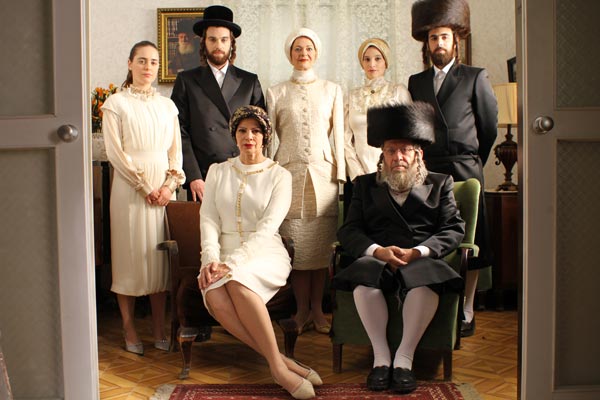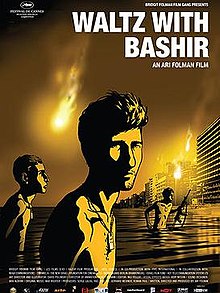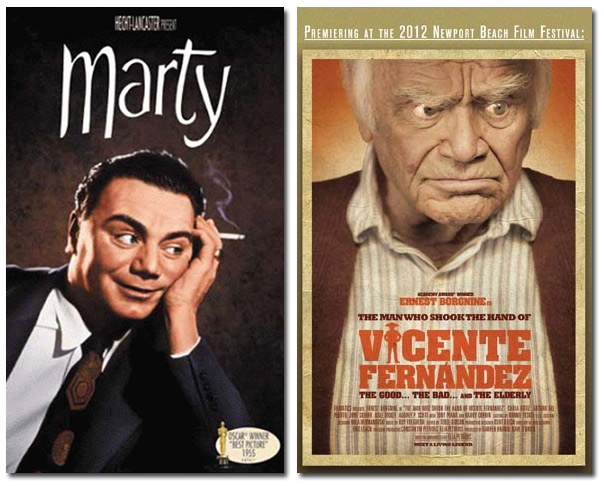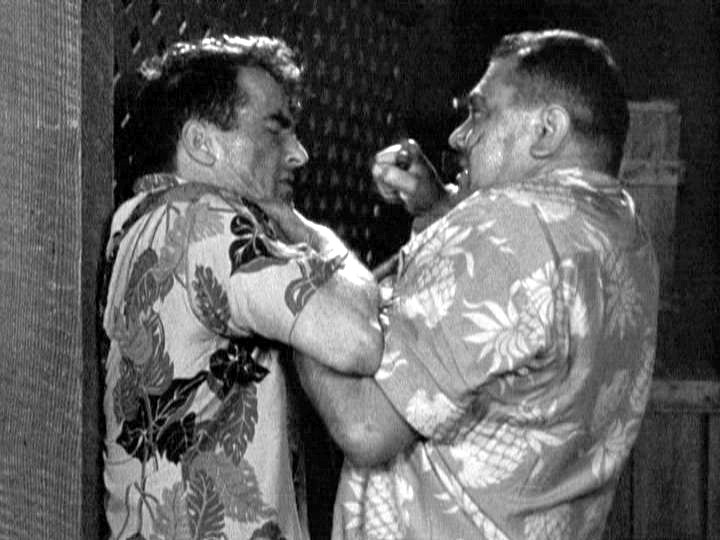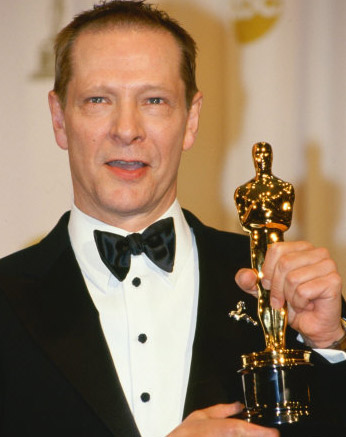For this edition of Hit Me With Your Best Shot, TFE's signature series in which everyone playing along must choose one shot from a selected movie that they define as best, we're looking at Sam Mendes Oscar-winning Road to Perdition (2002) on the eve of its 10th anniversary.
The film's sole Oscar win was a posthumous statue for the great cinematographer Conrad L Hall. He died in early January of 2003, just a few weeks before his tenth Oscar nomination was announced. Hall didn't have anything to prove this late in his career but Mendes sure did, given that it was his follow up to his Oscar winning debut American Beauty (1999). This crime drama is filled with frameable frames. It's majestic looking really, veritably dripping with prestige for better and worse, usually on account of both the lighting (one shudders to think how long Hall spent on each set up) and the intricate staging and compositions.
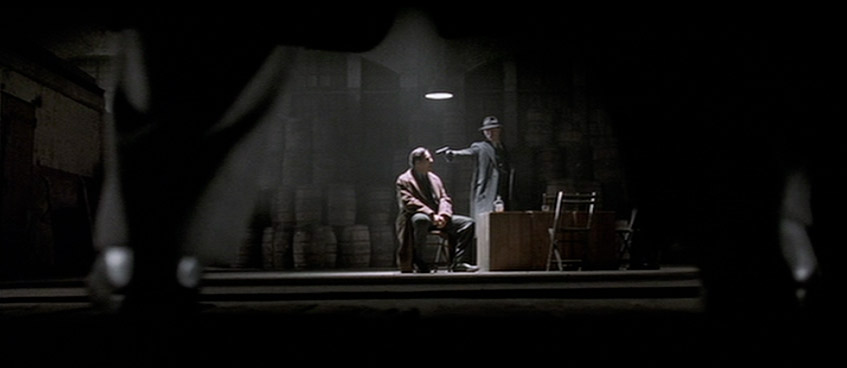 a terrific POV shot that doesn't cheat. That's so rare in the movies.
a terrific POV shot that doesn't cheat. That's so rare in the movies.
The bulk of the film's narrative spins dangerously from this eyewitness shot, a perfectly excellent choice for Best Shot -- I'm sure someone will choose it! -- if not (quite) mine.
Michael Sullivan Jr (Tyler Hoechlin nine years prior to Teen Wolf fame) is our narrator and he's about to witness a murder that his father (Tom Hanks) has a hand in though it's the unstable Connor Rooney (Daniel Craig) pulling the trigger. Road to Perdition's title suggests that the movie is about irredeemable souls and it is to some degree. Mob boss John Rooney (Oscar nominated Paul Newman) says as much when he's screaming at Michael Sullivan Sr. (Tom Hanks) in the basement of a church -- "There are only murderers here" -- predicting that none of them will see heaven. But the truer topic is fathers and sons. There are three sets of them in this movie: The Sullivans, The Rooneys, and the closest of the lot, the non biological edition - the Sullivan/Rooney.
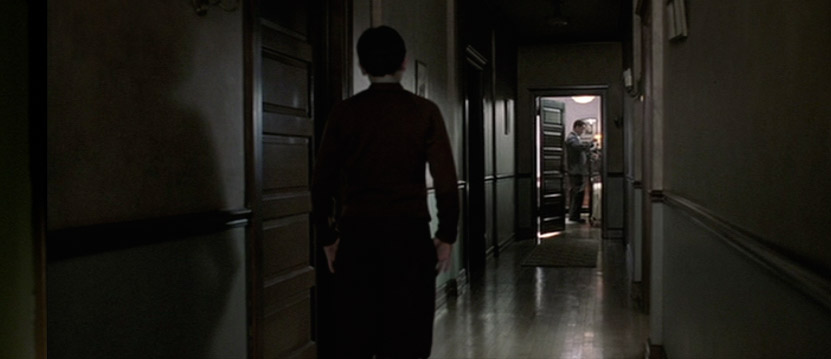 The introduction of Michael Sullivan Sr. He never turns to look at his son.
The introduction of Michael Sullivan Sr. He never turns to look at his son.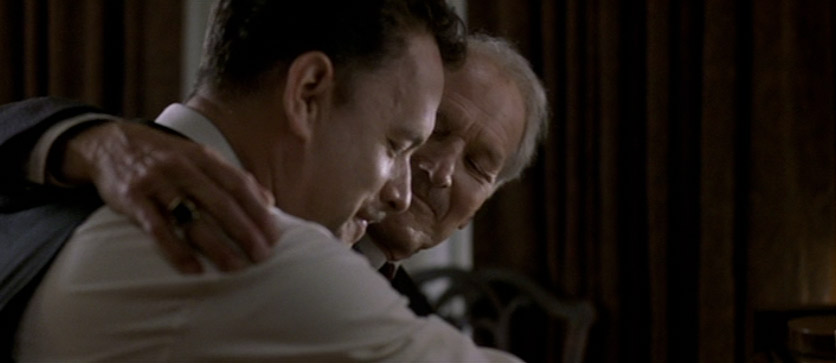
Sullivan Jr. and Sr as well as the Rooney Jr and Sr are often separated by great distances in the frame but note how Sullivan Sr and Rooney Sr are all tight in one of the film's most tender moments, a little piano duet at a wake.
That's all an elaborate set up to make my choice for Best Shot really hurt, to extend a little sympathy for the devil. The devil in Daniel Craig. In one of the film's least comfortable moments Connor glibly apologizes to the mafia bigwigs gathered about that murder that gets the film rolling. His angry father humiliates him right then and there. As the meeting adjourns Mendes and Hall's camera does a slow zoom in on Connor just as he's being abandoned by everyone visually. Connor goes out of focus the closer you get to him, the better to illuminate the father (Rooney Sr) and preferred virtual son (Sullivan Sr.) all chummy directly behind him.
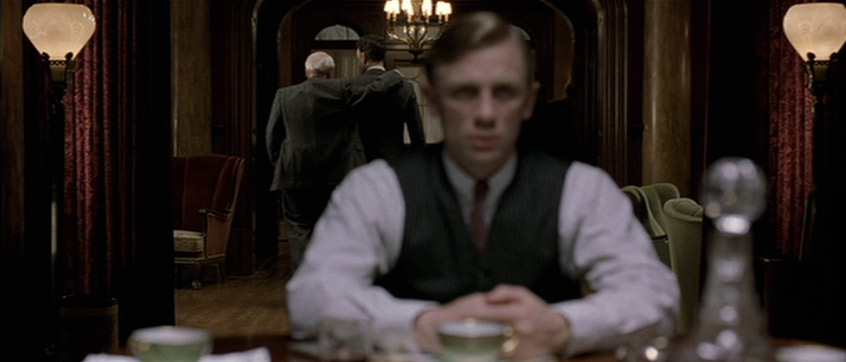 Best Shot
Best Shot
The focus snaps back to Connor at this perfect shot's tail end. He's about to kill two more people as payback insuring tragedy for all (including himself). No, he's not going to heaven.
Or maybe I just love this shot so much because it mirrors the sudden focus shift in Connor's introduction earlier as he lays on a couch smoking.
Or maybe I just love this shot so much because Daniel Craig is a dangerous actor and the movie desperately needs his unique kind. Jude Law as the very sick photographer "Maguire" also manages but Tom Hanks, fatally miscast, is at a complete loss to convey it. Even his furrowed brow looks friendly --physiognomy as destiny. Sorry, Tom!
Or maybe I just love this shot so much because the next sharp cut (god bless Jill Bilcock) from childish Connor seething with hate for daddy and adopted brother is to this:
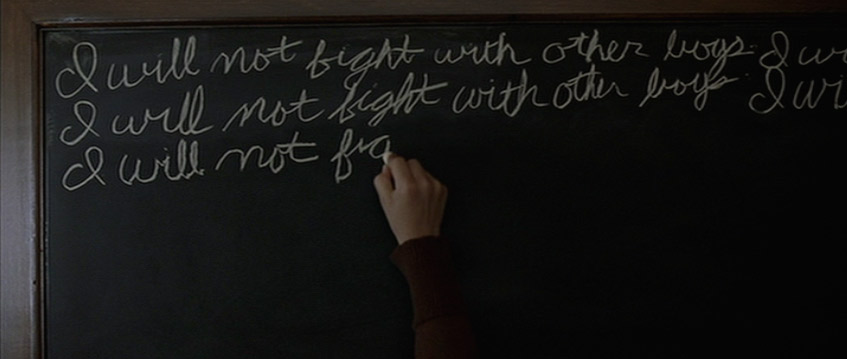
"There are only murderers bloggers in this room"
Serious Film "blaze of glory"
F*** No, But There's a Poster "Meet Maguire"
Amiresque best (gun)shot
Cinesnatch past, present and no future all in one image
Film Actually a father and son reunion
Encore Entertainment "when you raise a gun you get your own blood on your hands"
Antagony & Ecstacy on one of the most beautiful pictures of the past quarter century
Pussy Goes Grrr convergent diagonals, legible horizontals, phallic guns?
Okinawa Assault biking towards damnation, wading in crowds
I'm also happy to report that Rope of Silicon has joined the "Best Shot" party this week. Brad's series "Paused" which shares gorgeous screenshots from random movies will line up with ours here when we're both in the mood for the same movie. I'm sad I didn't think to do Alien when he covered it.
Next up on 'Hit Me':
07/18 PINK NARCISSUS (1971) *for adult audiences only*
07/25 THE ROYAL TENENBAUMS (2001) Wes Anderson's masterpiece?
08/01 HOW TO MARRY A MILLIONAIRE (1953) with Marilyn Monroe, Lauren Bacall and Betty Grable.
 Wednesday, October 10, 2012 at 1:00PM
Wednesday, October 10, 2012 at 1:00PM 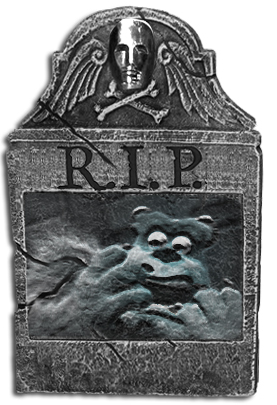
 Monsters Inc,
Monsters Inc,  Oscar Horrors,
Oscar Horrors,  Oscars (00s),
Oscars (00s),  Pixar,
Pixar,  animated films
animated films 


